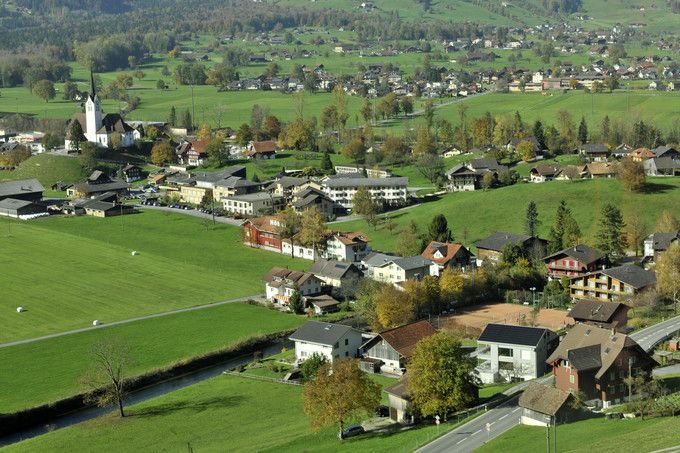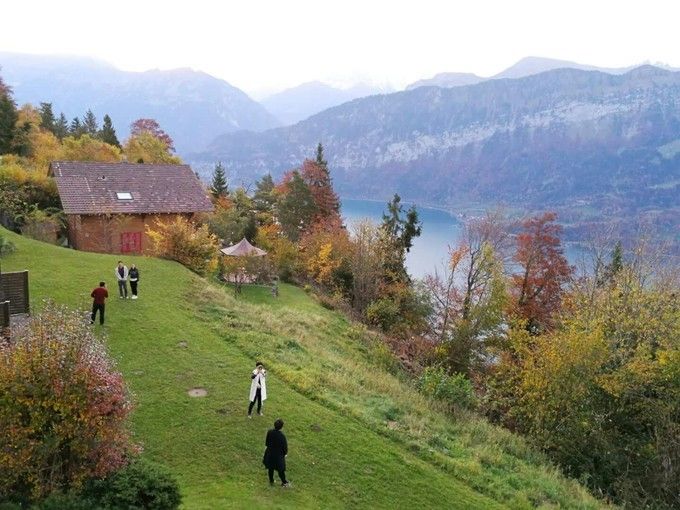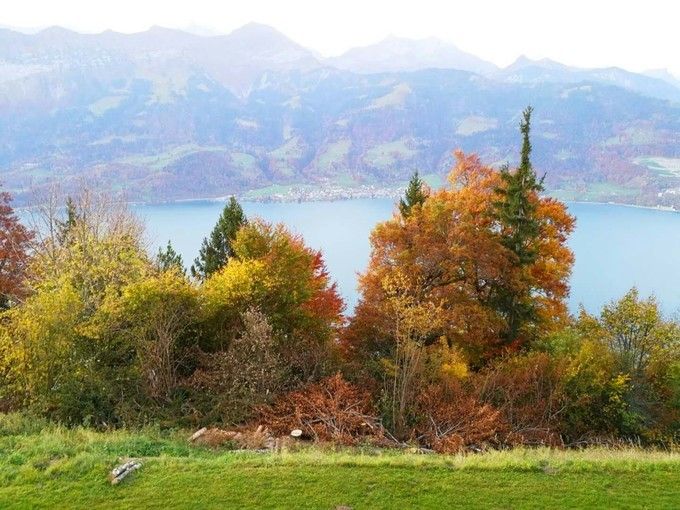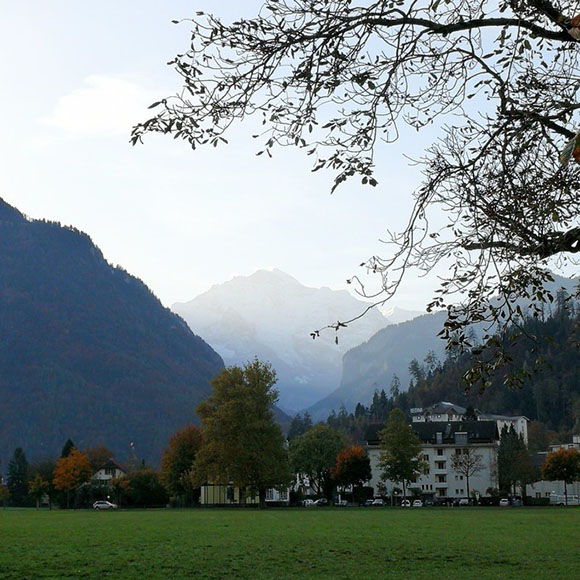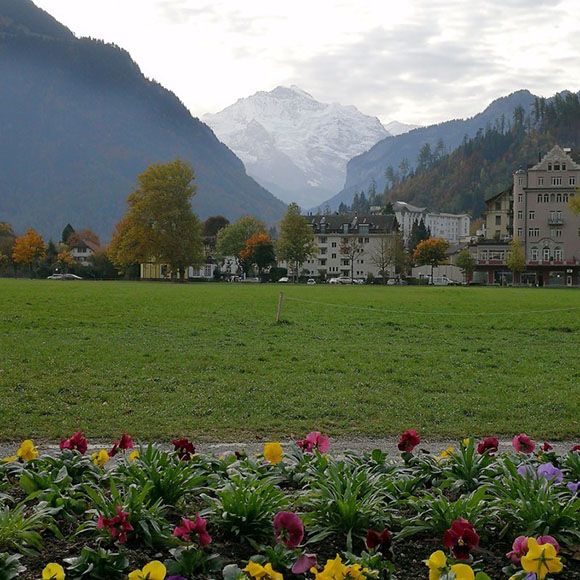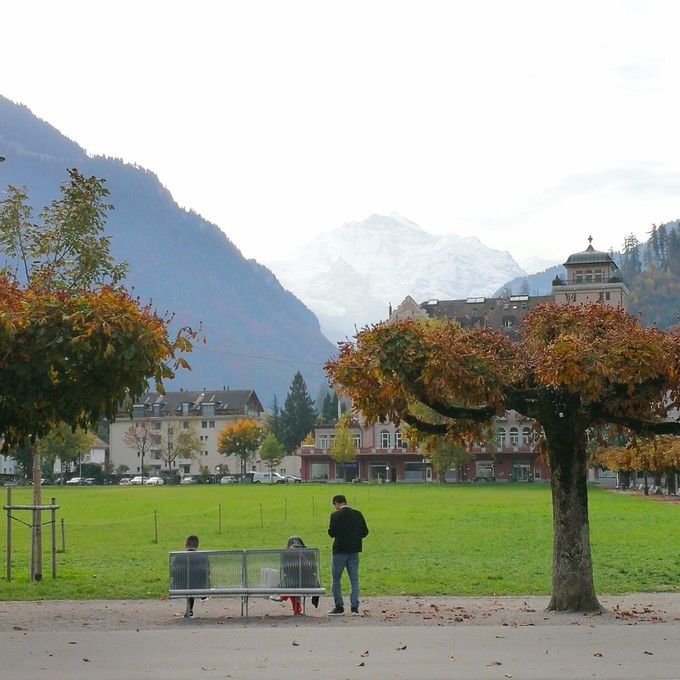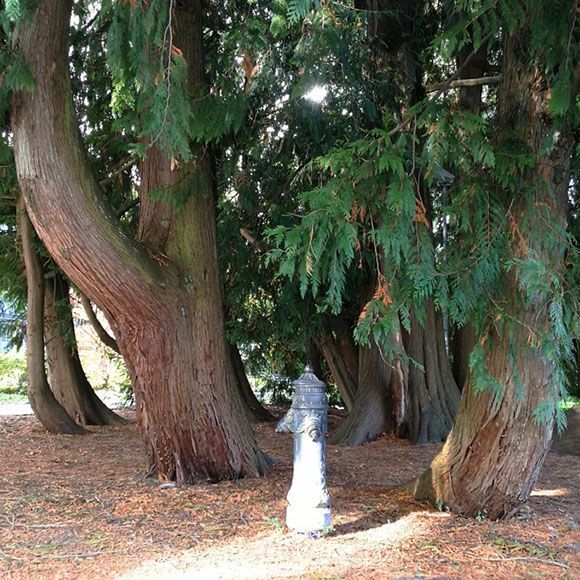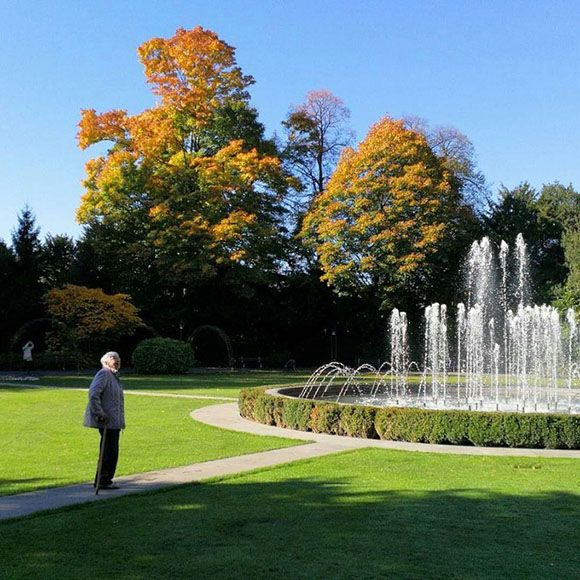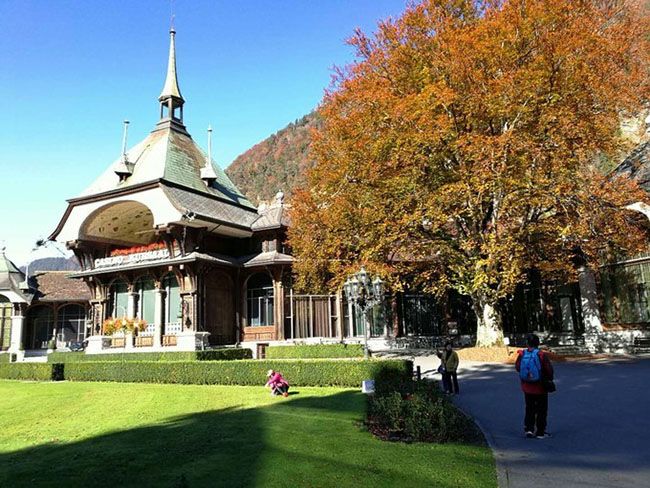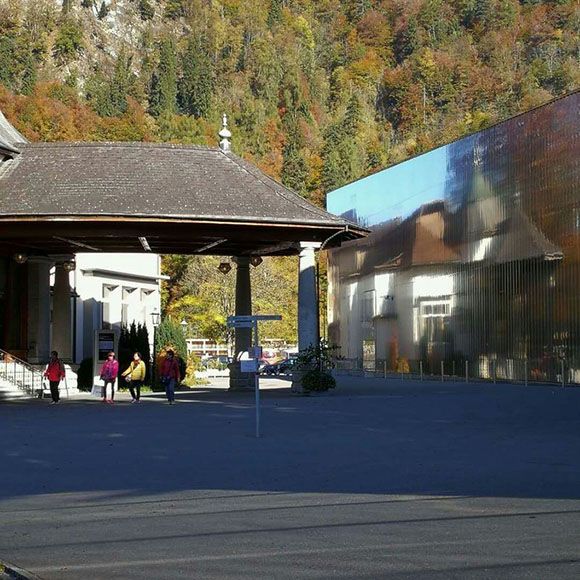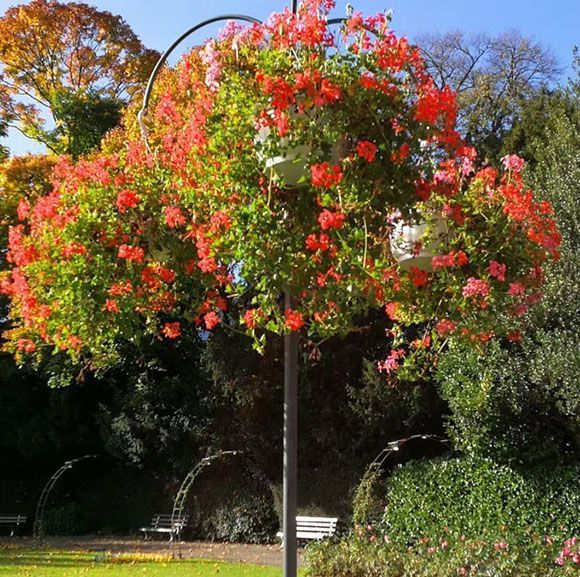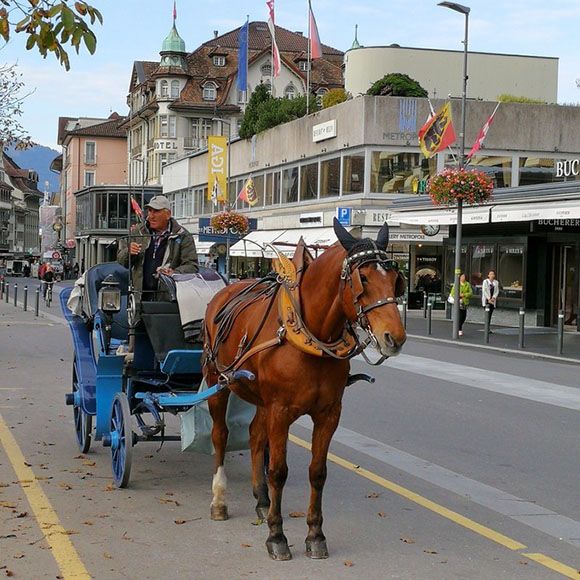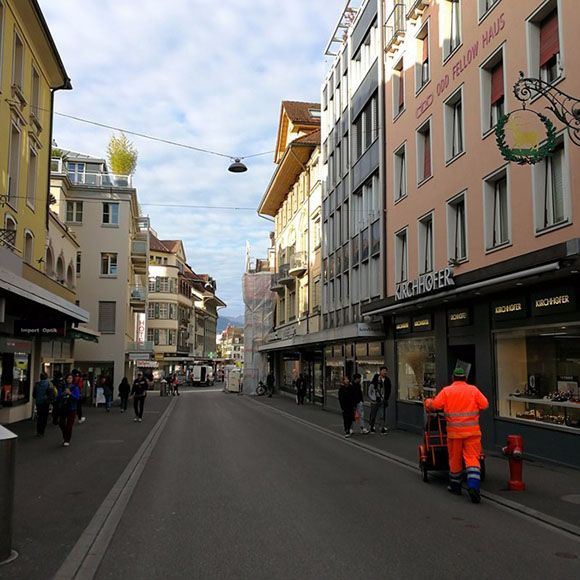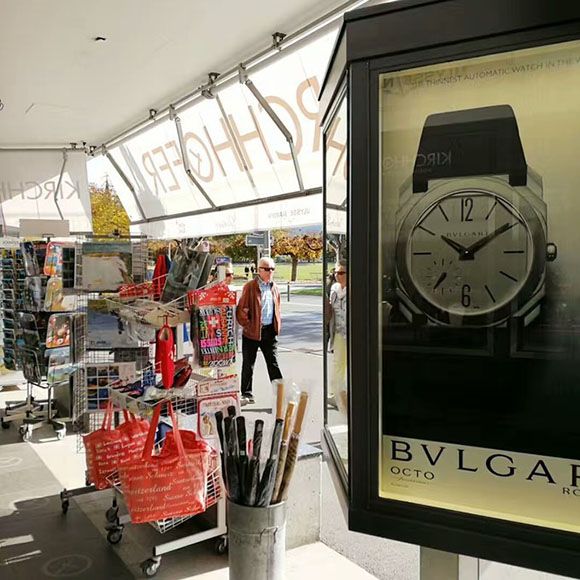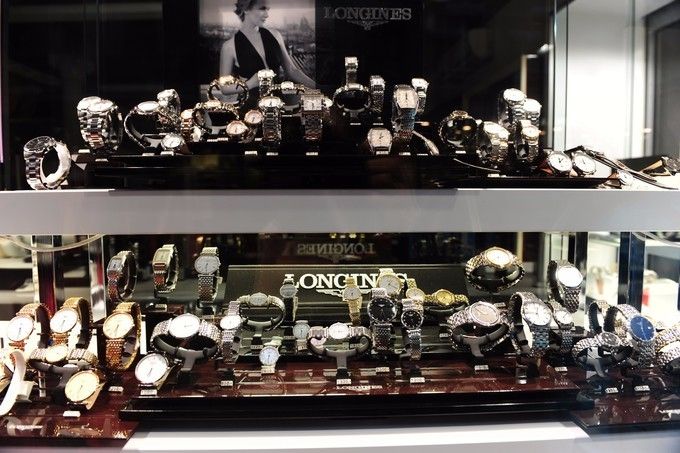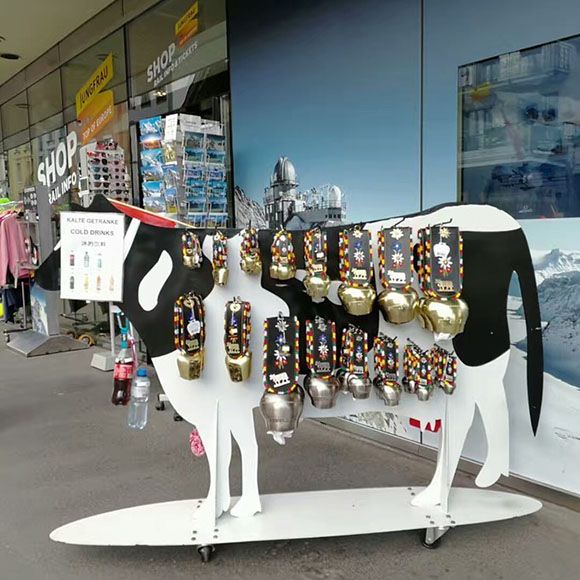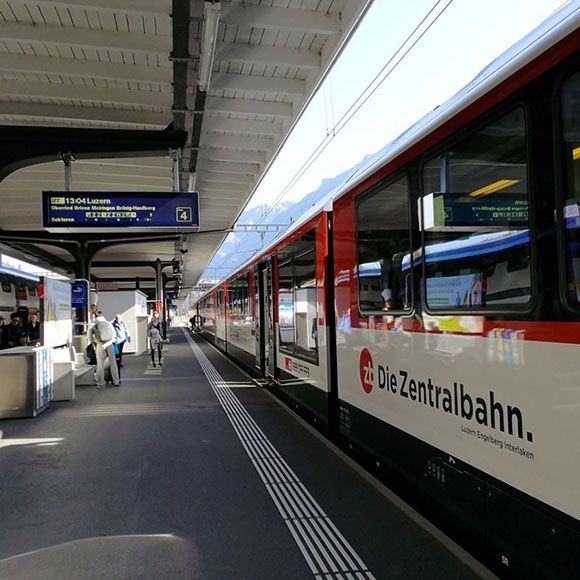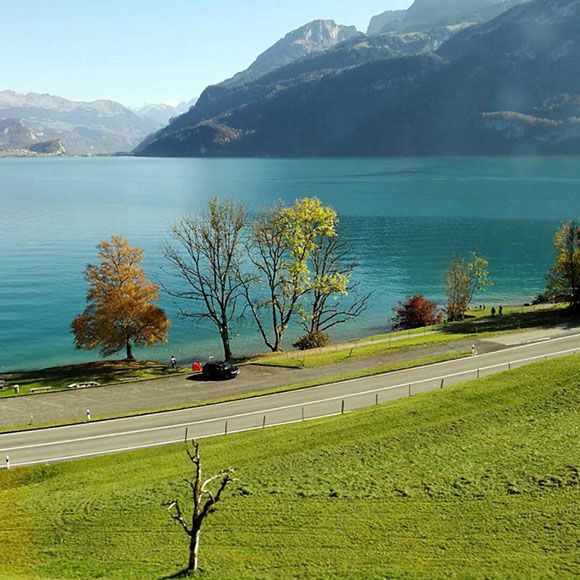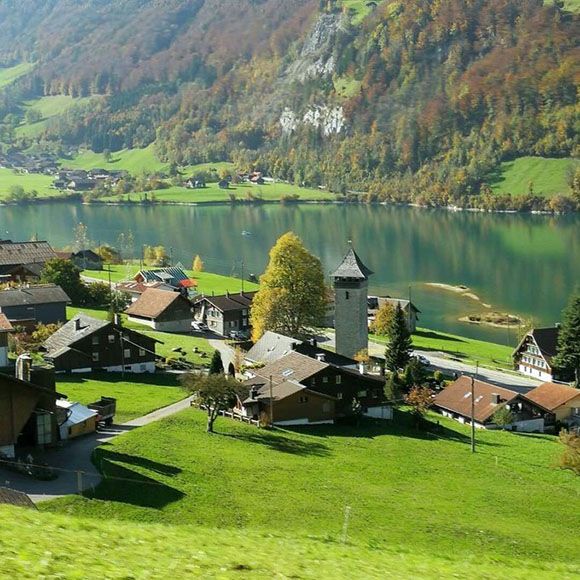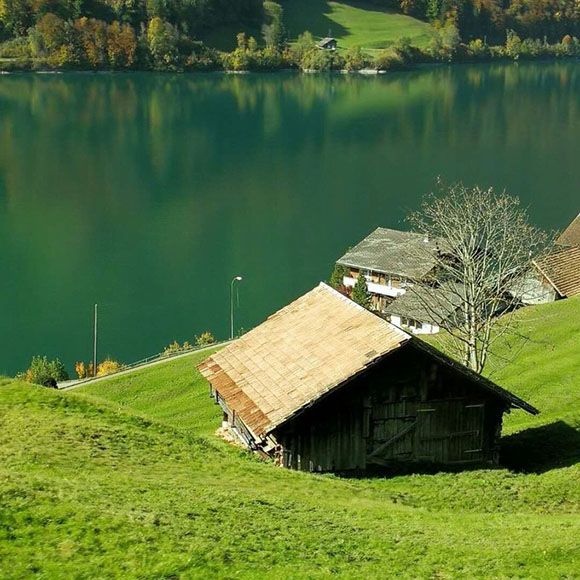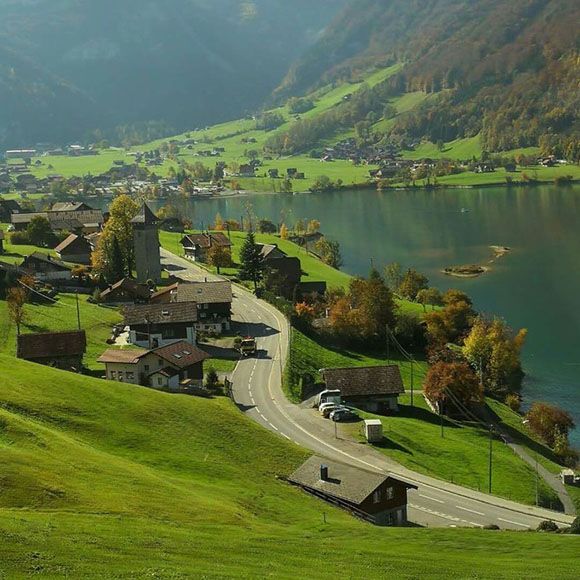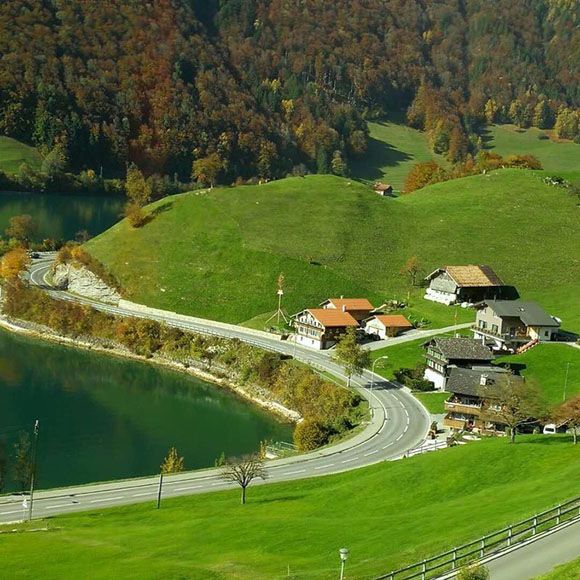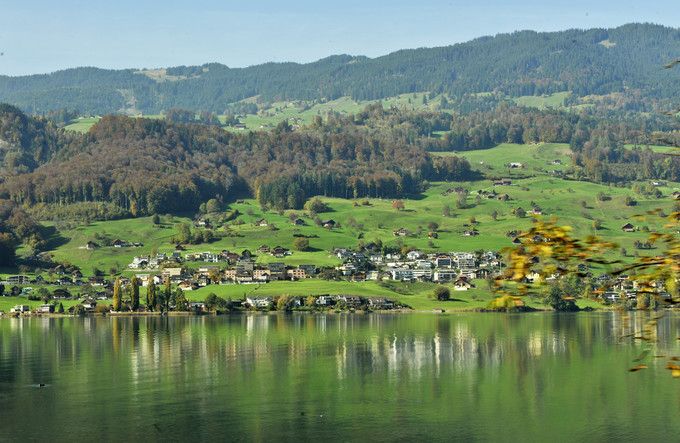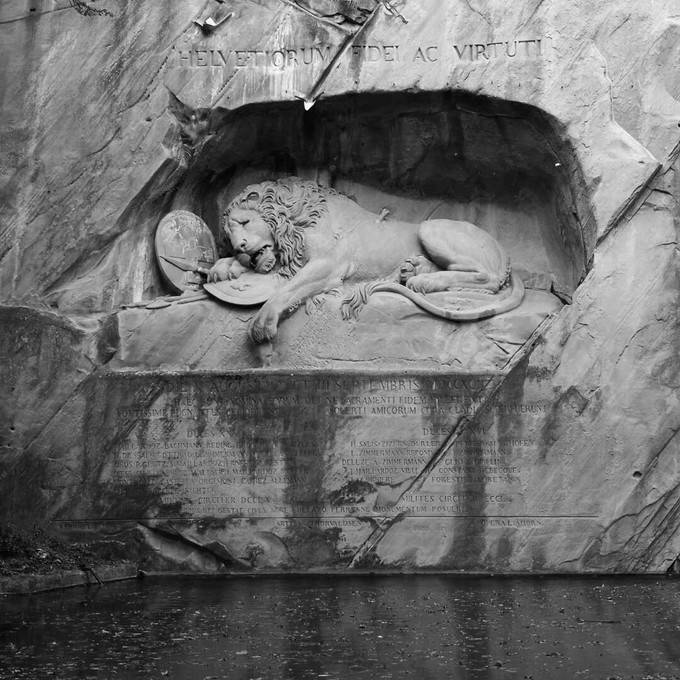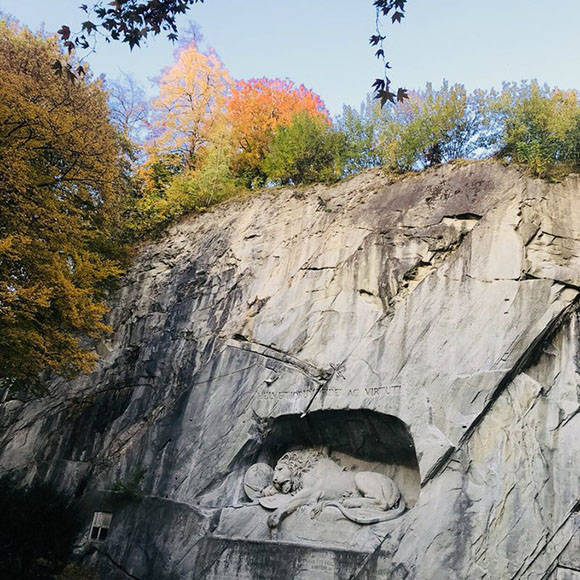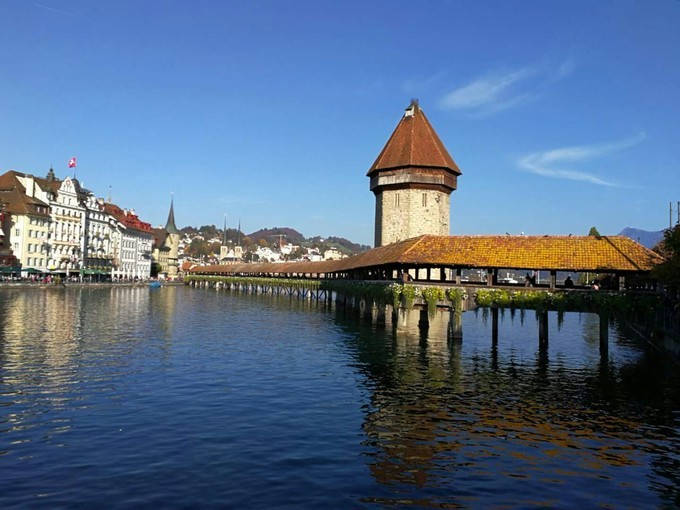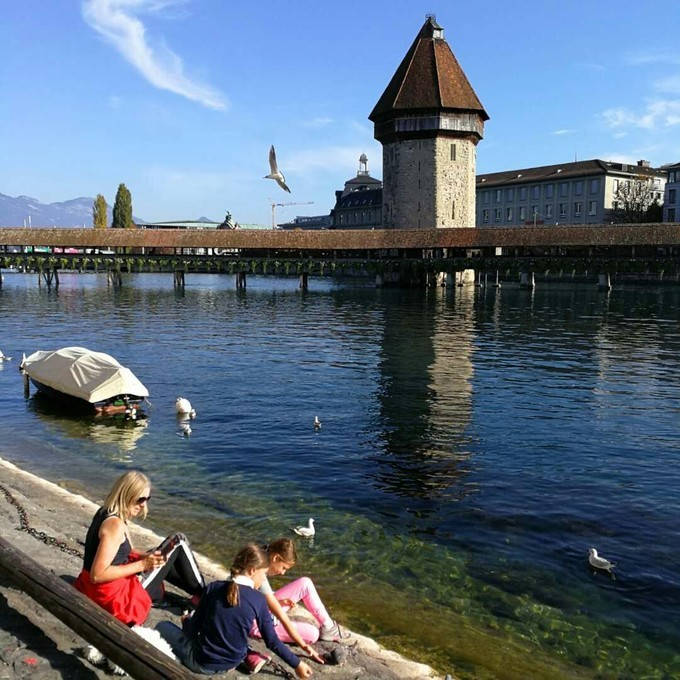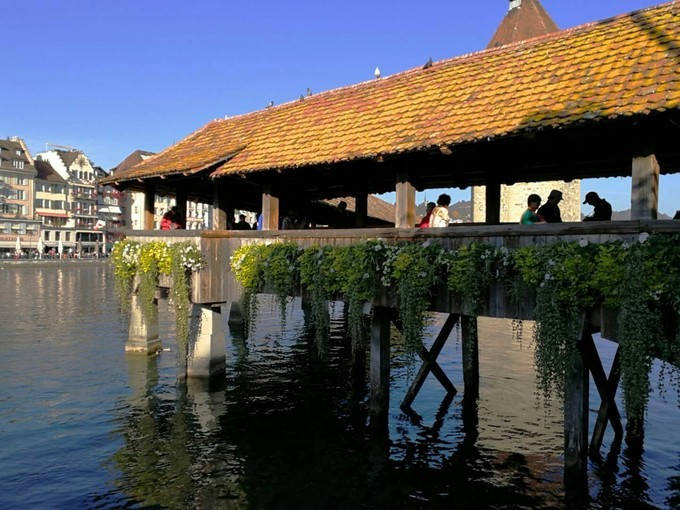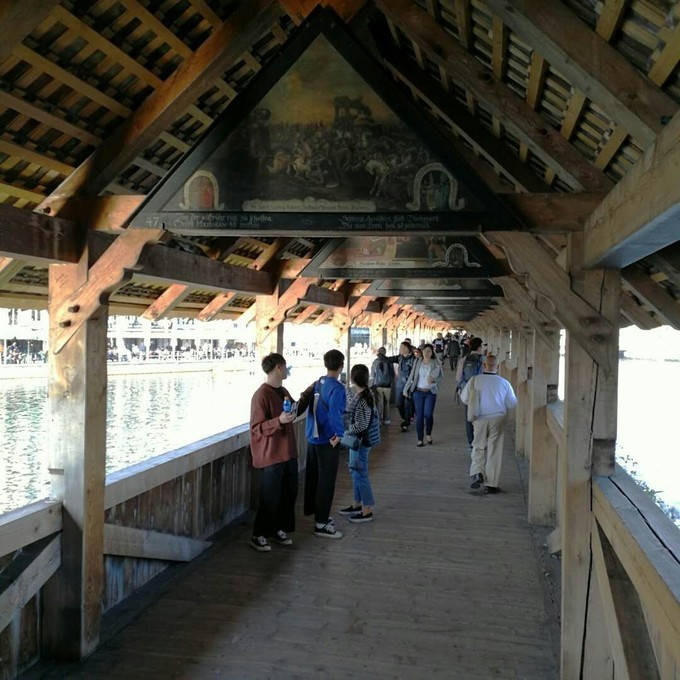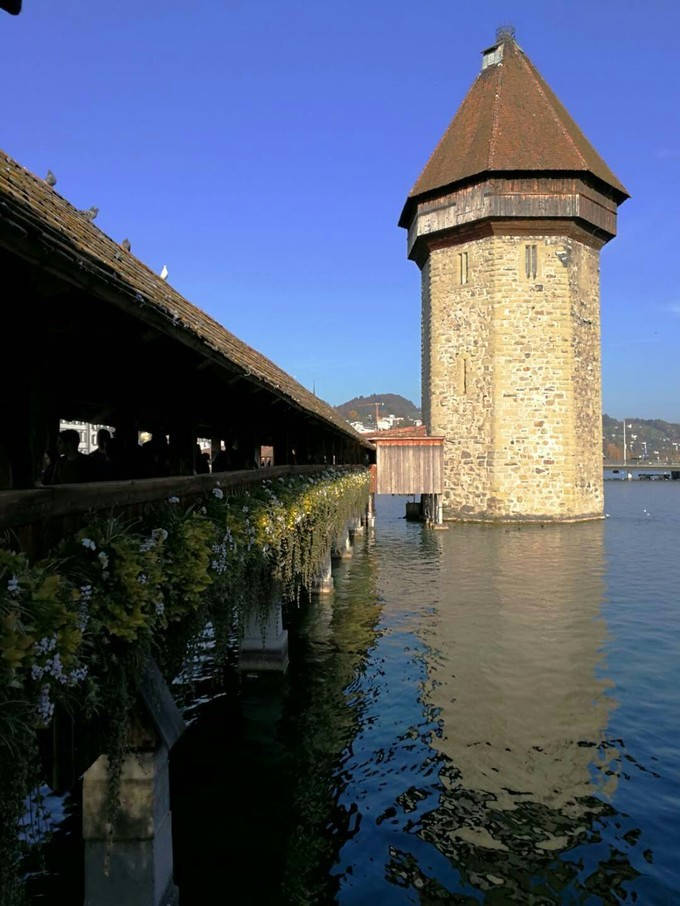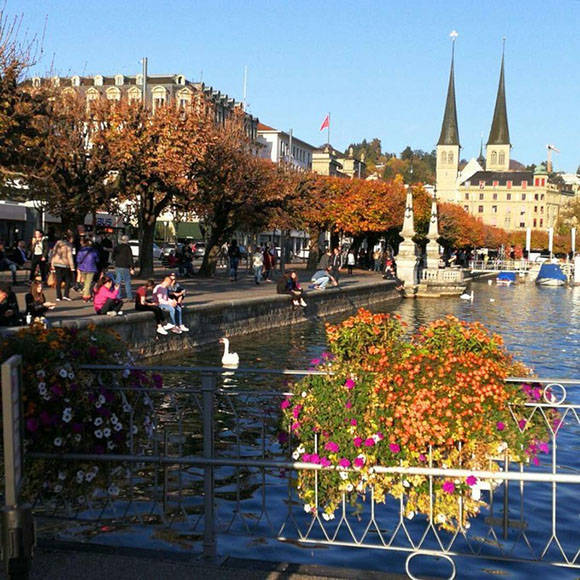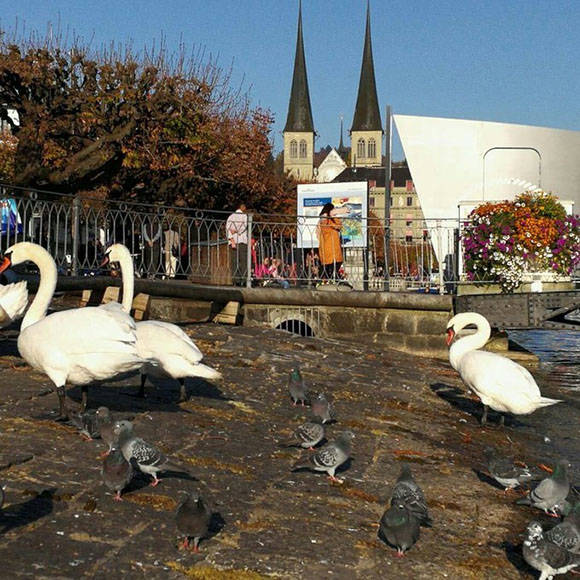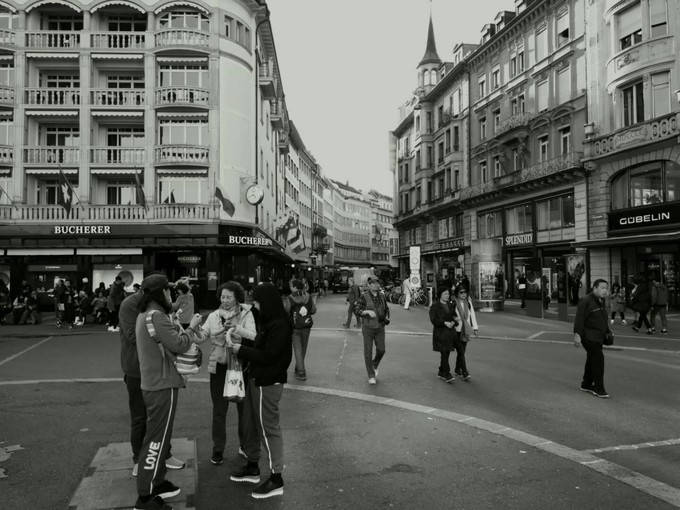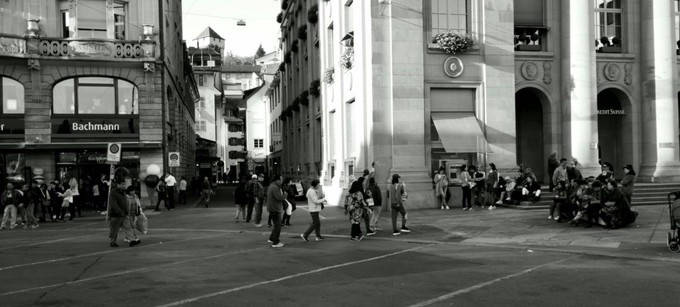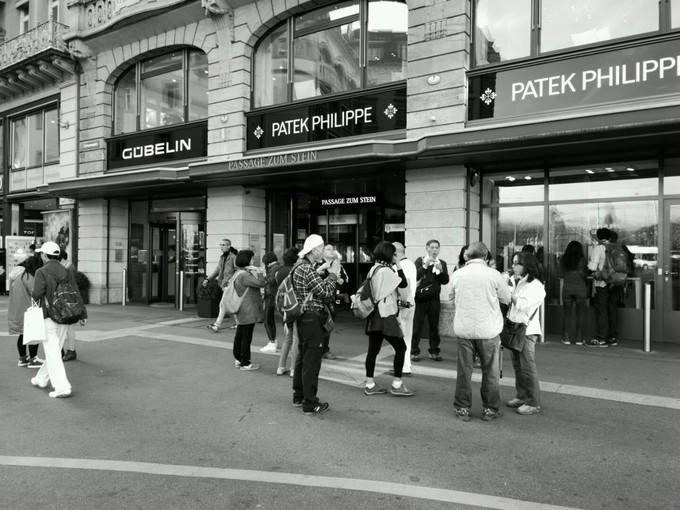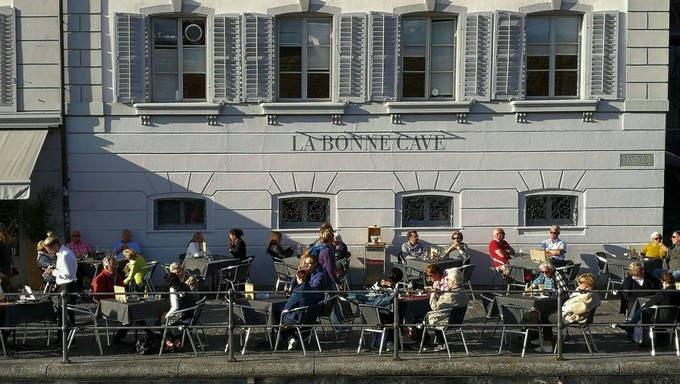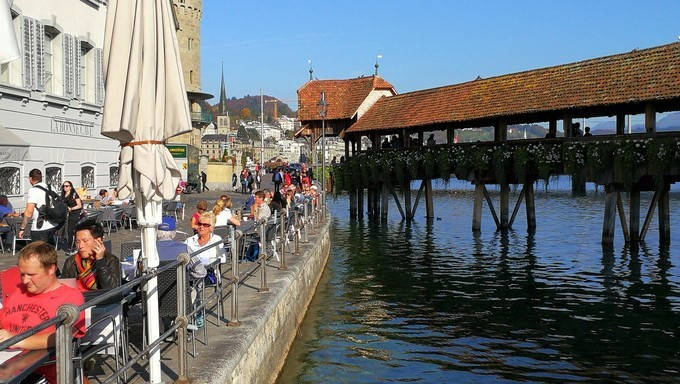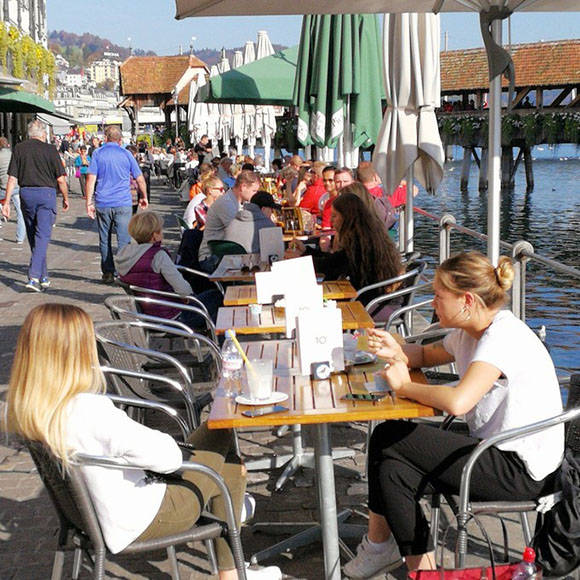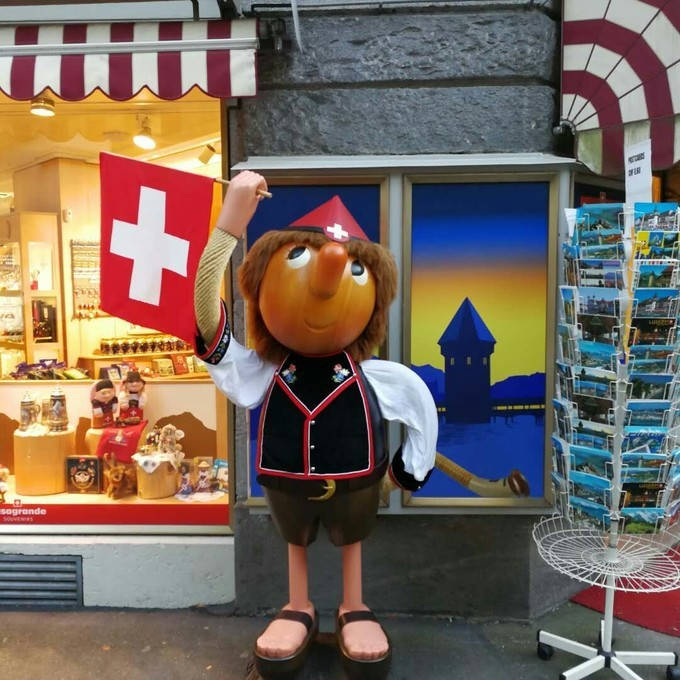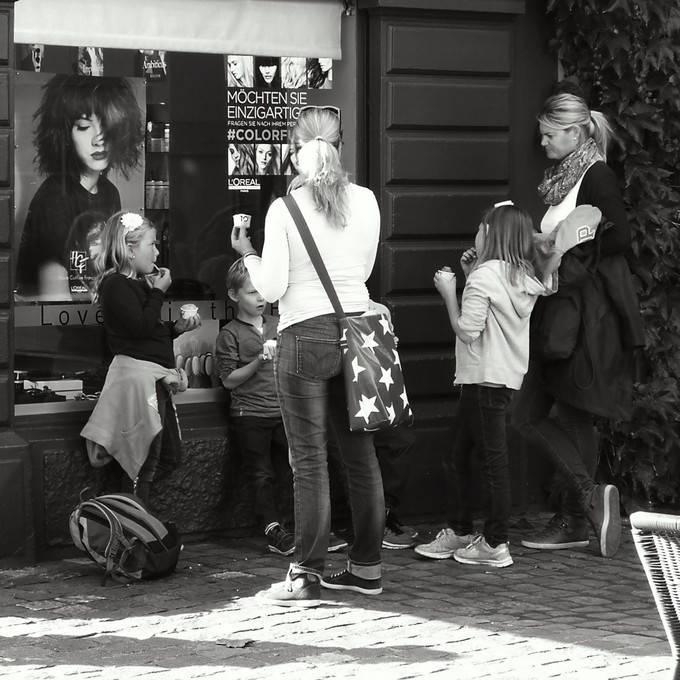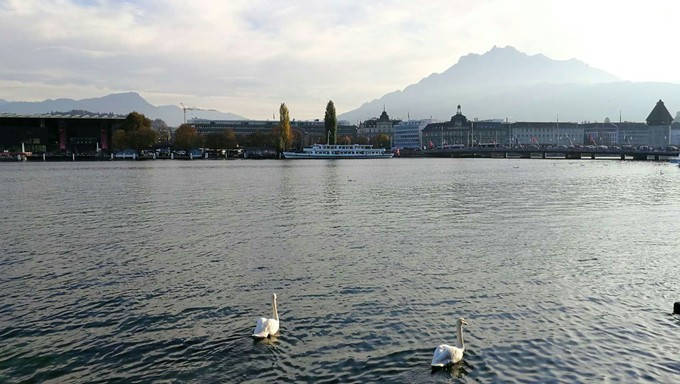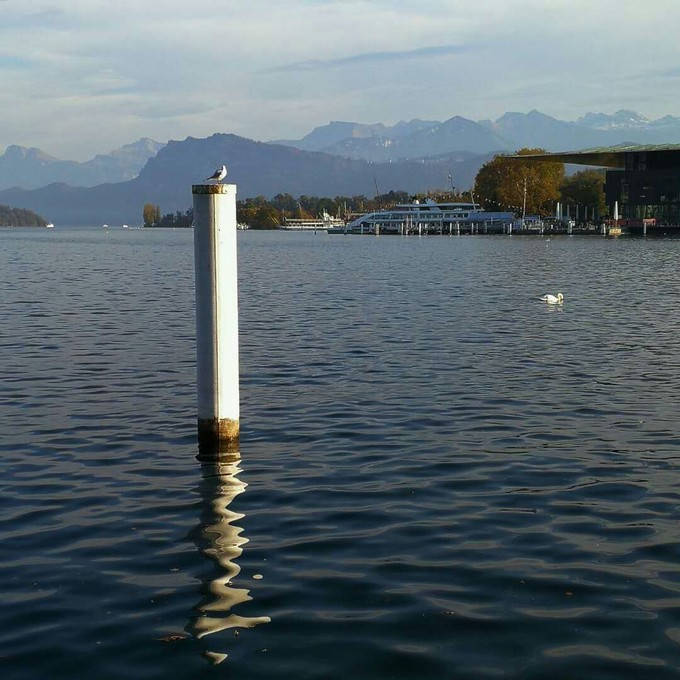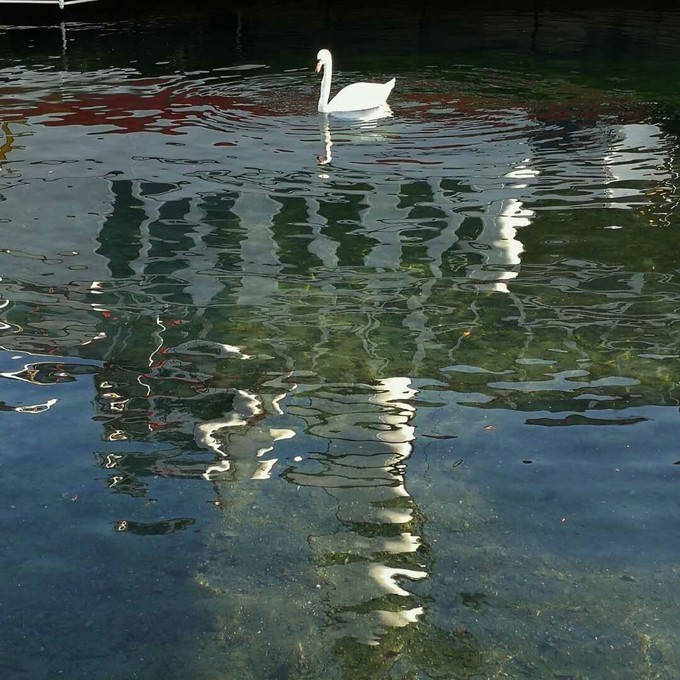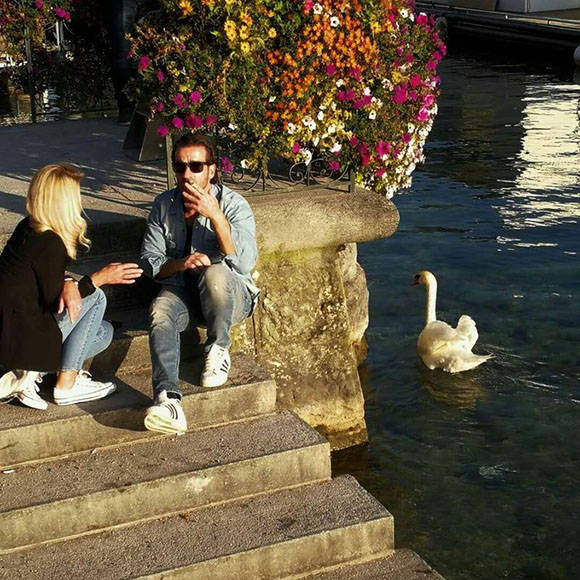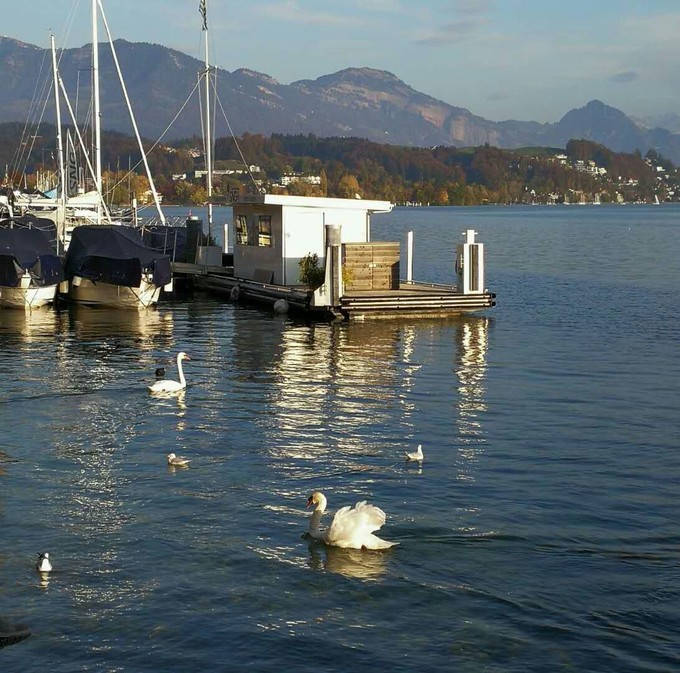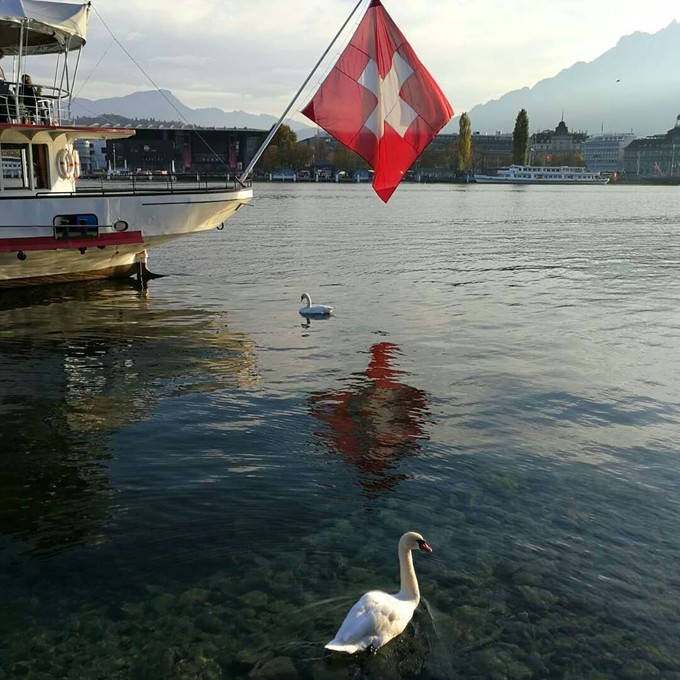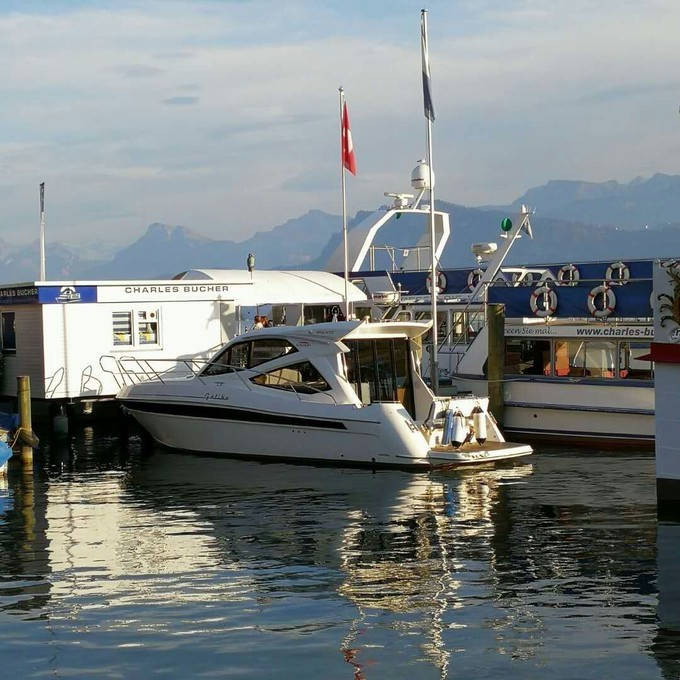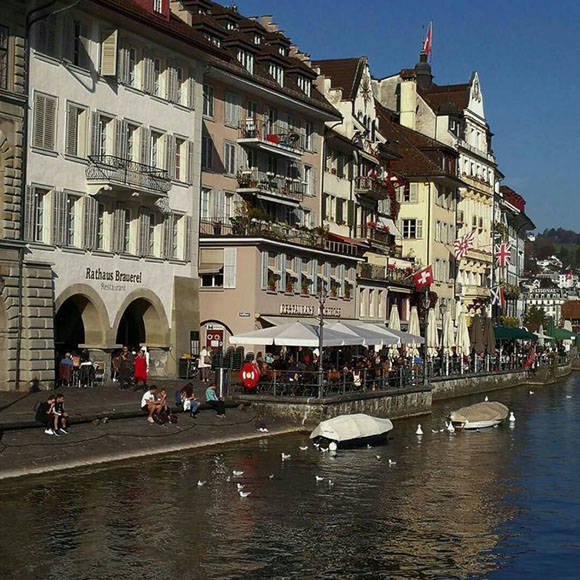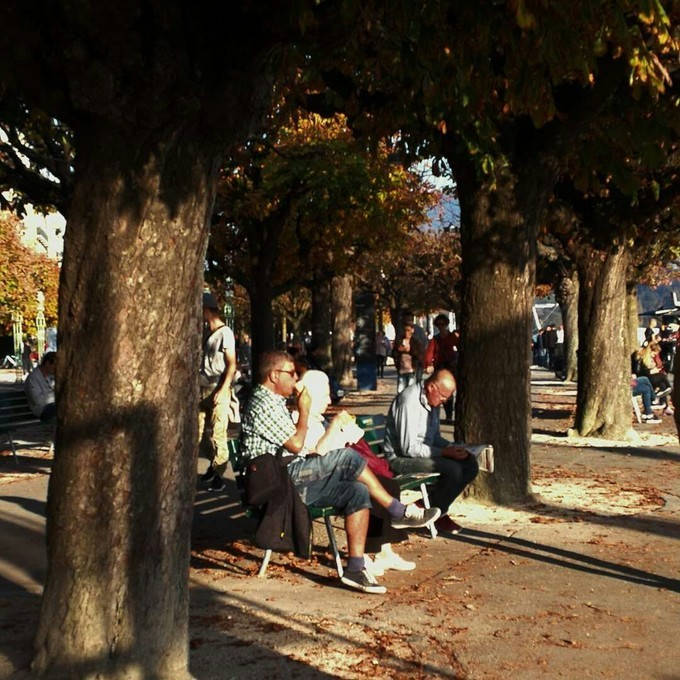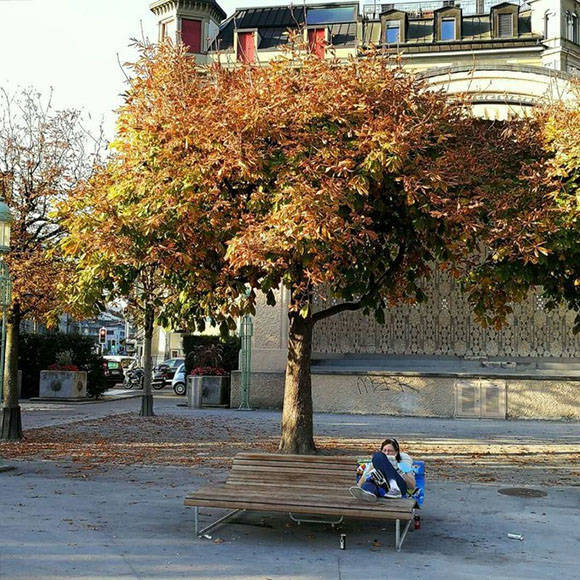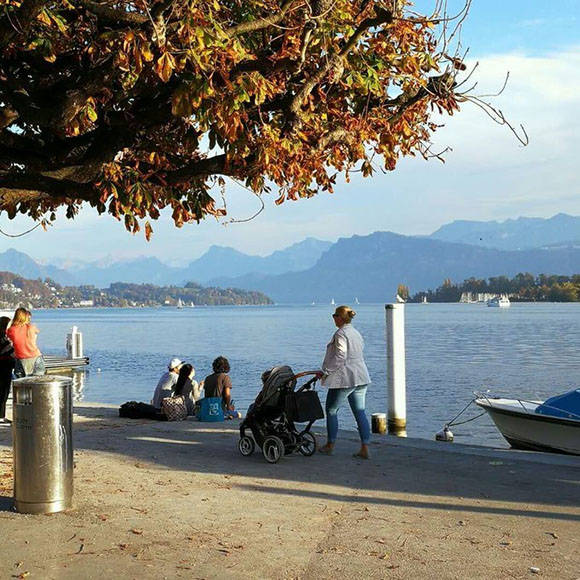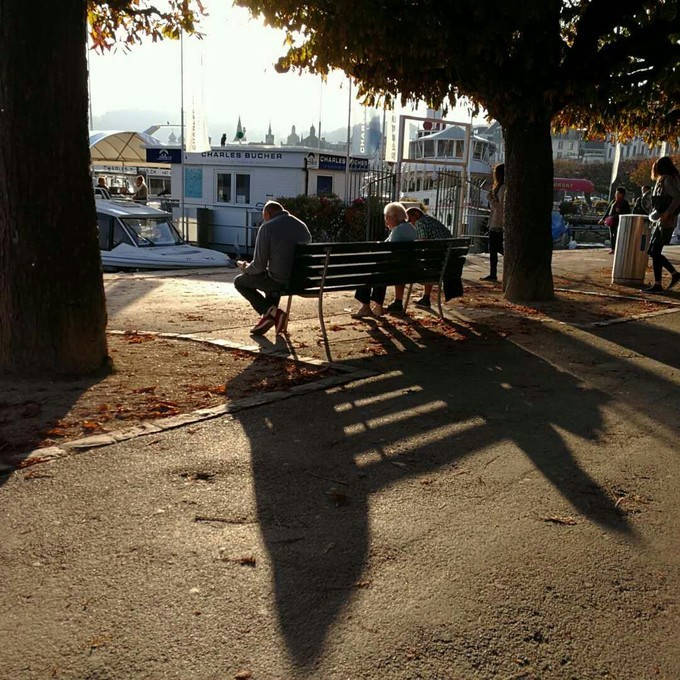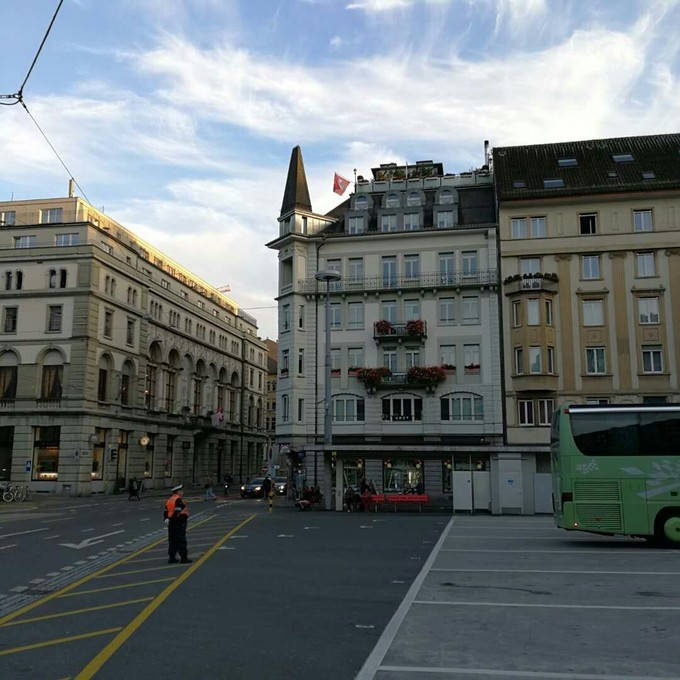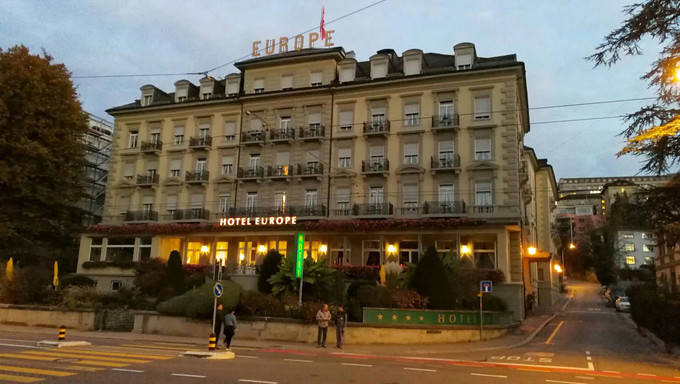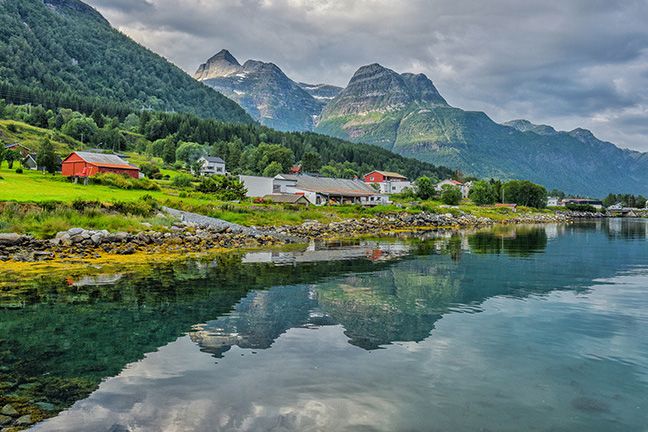Yesterday, we slept overnight in Doring Hotel.
We stand on the balcony, overlooking Lake Thun in the morning, the scenery is very beautiful.
At noon today we will go to Lucerne by the Golden Pass panoramic train. We go shopping in the morning.
Interlaken is the central town in the Bernese Oberland, It is surrounded by the Alps, but it’s not actually in the mountains. The town is situated in between two beautiful lakes. Interlaken is one of foreign cities that have established sister city ties with Huangshan City in China. The city has horse-drawn buggies, gardens, shopping streets, upscale hotels, dining rooms and so on, each with its own characteristics.
There are many expensive Swiss watch stores, upscale fashion shops and featured souvenir shops in Hoheweg street interlaken.
In the souvenir shop, we can see different kinds of cowbells.
The brand-new Golden Pass panoramic train is the most famous scenic train in Switzerland. The train route between Lucerne (Luzern) and Interlaken is one of the loveliest scenic rail trips in Switzerland and shorter than some of the other branded scenic trains, a part of the path of the Golden Pass train route.
We are required to book tickets for the Golden Pass panoramic train in advance, but the travel agency help us make ticket reservations, we don’t worry about that.
The train stations are clean, scenic and masterfully efficient. They all offer basic amenities, vending machines, and occasionally a store at which to stock up on supplies.
This route is very beautiful, Lake Thun, Lake Brienz and Lake Lucerne attracts our eyes. The train is running between mountains and lakes, lakes and mountains add radiance and beauty to each other, I find myself in wonderland.
Lucerne, lying on the Reuss River, used to be the capital of Switzerland, now is the sixth-largest city in Switzerland. As beautiful scenery, Lucerne is one of the most popular tourist attractions in Switzerland.
The Lion of Lucerne was designed by Bertel Thorvaldsen, a famous Danish sculptor who lived between the 18th and 19th centuries. The purpose of the Lion of Lucerne was to commemorate the mercenary soldiers from central Switzerland who lost their lives while serving the French king Louis XVI during the French Revolution.
The highlight of the monument, however, is undoubtedly the statue of the lion itself. At first glance, the most noticeable feature of the lion is that it is dying. Upon closer inspection, one may notice the head of a spear sticking out from the side of the lion – the cause of its suffering and its eventual death. In addition, the lion is portrayed partially covering a shield bearing the fleur-de-lis. This is an obvious symbol of the French monarchy, as well as a representation of the cause that the Swiss Guards fought and gave up their lives for.
One of the most well-known descriptions of the Lion of Lucerne comes from Mark Twain’s 1880 travelogue, A Tramp Abroad , in which the American author wrote that the memorial was “the most mournful and moving piece of stone in the world.”
Chapel Bridge is a wooden pedestrian bridge that spans Reuss River in the city Lucerene in Switzerland. It was built in 1333 and is one of the oldest wooden bridges in Europe.
One of the characteristics of Chapel Bridge is that it has painting hanged bellow its roof. They are triangular and depict events from the history and Legends of Lucerene, from painting that present life and death of Lucerne’s patron saint St. Leger to legends of city’s other patron saint St. Maurice. They were painted in 17th century by a local Catholic painter Hans Heinrich Wägmann.
On August 18th, 1993, shortly after midnight, about two thirds of the wooden Chapel Bridge were destroyed by fire. Only the pillars, the bridgeheads and the Water Tower could be saved. Within a year, Chapel Bridge was completly restored.
However, 85 of the 110 pictures under the roof, dating back to 1611, were destroyed by the 1993 fire, only 25 could be saved or restored. The others have been replaced by pictures from the second part of the bridge that had been safely stored since 1834.
Water Tower is older that the bridge by some 30 years and was used as a prison and also as archive. Although it is a part of bridge complex it is now not opened for public.
Hof Church, main cathedral for the city, as well as the St. Leodegar and St. Maurice religious center. A Benedictine monastery was founded here in the 8th century. In 1633, a fire destroyed the church; it was rebuilt in 1645. It is the most important Renaissance church in Switzerland. Especially noteworthy are the façade, Mary’s alter(with a relief panel dating from 1500), and the souls’ altar.
Schwanenplatz is a major shopping place for tourists visiting lucerne. there are numerous shops here, cafes, restaurants,etc. The shops of ‘bucherer’ and the ‘gubelin’ watchmakers are very famous for swiss watches and mostly high end watches. A rolex watch factory is also present in this area. Other shops around sell local swiss handicrafts, Some shops sell souvenirs such as swiss army knives-victorinox, chocolates, jewellery etc.
Coffee shops can be seen everywhere, on the streets of Lucerne, lakeside. If fatigue overtakes you, it is nice to sit down, relax, and have some coffee.
Swiss chocolate is famous aross the world, with good reason. The nation has a long history of excellence in the field, and many of today’s chocolatiers still use traditional recipes and make every sweet treat by hand. We visit here and do not ignore it. Hey, and ice cream too.
Lake Lucerne is a lake in central Switzerland and the fourth largest in the country. There are many high mountains by the lake, such as Pilatus Mountain, Rigi Mountain etc. Swan swims on the surface of Lake Lucerne. Beautiful lakes and mountains are the typical Swiss landscapes, beautiful.
Dozens of tourist boats are tied up alongside the lakeshore, they are symbols of wealth.
Lucerne, transportation convenient, easy and comfortable life, picturesque mountains and lakes, is a well-deserved livable city.
The Grand Hotel Europe in suburban Lucerne in which we live is near the lake.
